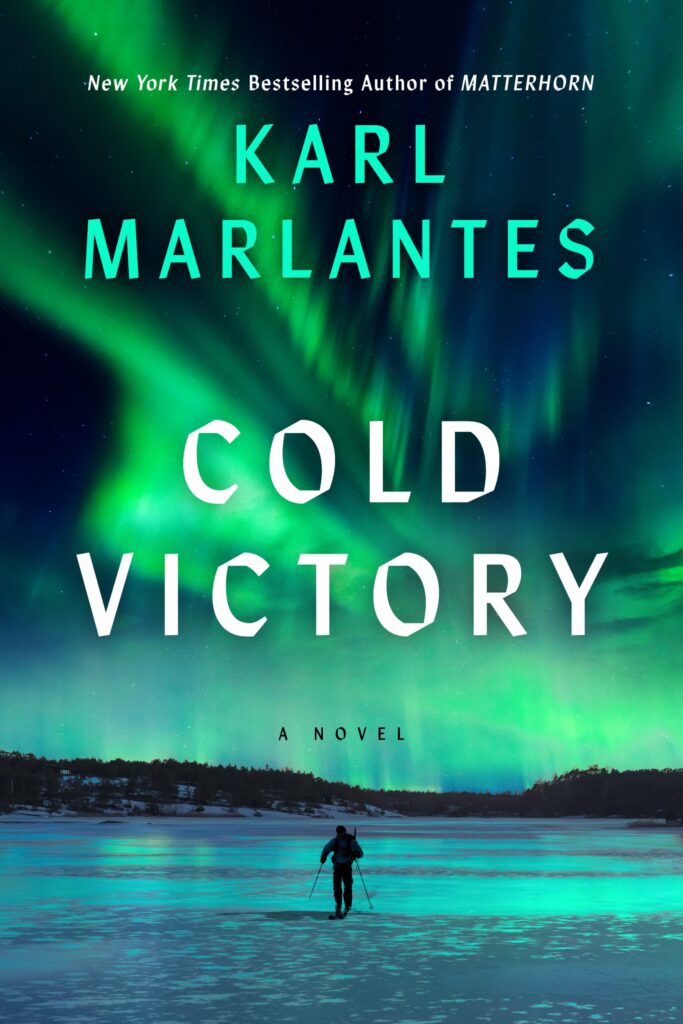Set in Helsinki, Finland, in January or February 1947, Karl Marlantes’ new novel Cold Victory is set in the early days of the Cold War, when the United States and the Soviet Union were still wartime allies, but barely. Meanwhile, Finland, a small democracy bordering the Soviet Union, is feeling pressure from both countries for loyalty to the Soviet Union.
“Cold Victory” begins with the arrival in Helsinki of Ernie Koski, a Finnish-American military veteran now working for the State Department, and his intelligent and bubbly wife Louise. Louise, from Oklahoma, speaks neither Russian nor Finnish. She has never been east of the Mississippi River before and is a total noob in the ways of international diplomacy, but what she lacks she makes up for in her determination to make her husband’s posting a success.
At a diplomatic event shortly after his arrival, Arnie notices Mikhail Bobrova, a Russian military attaché he passed during the Allied invasion of Germany. As the men drink and share memories of the war, good-natured boasts about their respective countries’ military might and superiority turn into challenges. It’s a 10-day, 500-kilometre cross-country ski race through northern Finland, in which each person carries everything they have on their back. You will need it for the mid-winter crossing. They agreed to keep the race private and turn it over to higher-ups as a “reconnaissance of entry and exit routes” for use in future military operations.

When Ernie leaves for the North Country, Louise comes up with the idea of using the event to sell raffle tickets to raise money for the local orphanage. The buyer predicts which skier will win and in what amount of time. This shows a friendly match between her two wartime allies. Goodwill and cross-cultural cooperation towards the Finnish people. She has developed a friendship with Mikhail’s wife Natalia, and she thinks this project is something the two wives can work on together. However, Natalia is deeply concerned about this plan, as she was orphaned when her parents were executed for cheating and is well aware of the brutality of Stalin’s secret police.
In fact, as the story of this race was picked up by local newspapers and spread around the world, portrayed as a conflict between communism and democracy, Louise put Natalia, Mikhail, and their two children in danger. I noticed that “What do you think Comrade Stalin would think about the heroes of the Soviet Union being defeated by the corrupt, soft-capitalist Americans?” Natalia angrily confronts Louise and says, “What do you think they can do to you?” I don’t know,” he concluded.
Although the men’s race is the engine of the plot, the story focuses on Louise and Natalia’s friendship and their very different experiences in the world. Louise is full of optimism and the belief that her voice and experience matter. Natalia comes from a world where “‘facts’ can be true or false, and where interpretations of ‘facts’ are as variable as political leadership.”
This is not the first time Marlantes, a Pacific Northwest native and decorated Marine who fought in Vietnam, has written about Finland and the war. He is also the author of “Matterhorn: A Novel of the Vietnam War” and “Deep River,” a story about a Finnish family who flee Finland and settle in a logging community in the Pacific Northwest. As a historical novel, Cold Victory successfully sheds light on the little-known effects of World War II on the small country of Finland.
The sections written from Ernie and Mikhail’s point of view during the race read like a fascinating outdoor survival story. And the political intrigue angle will keep readers turning the pages to find out what happens next. Marlantes also contains material for thinking about how totalitarian regimes operate and the real-life consequences of the loss of truth and privacy in society. “Cold Victory” is an engrossing read that appeals to a wide range of interests.
Lisa Gresham is Collection Services Manager at Whatcom County Library System (wcls.org).
